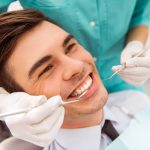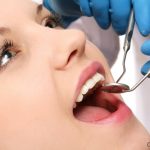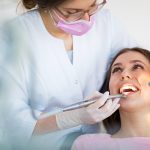Chewing After Wisdom Teeth Removal: When is it Safe?
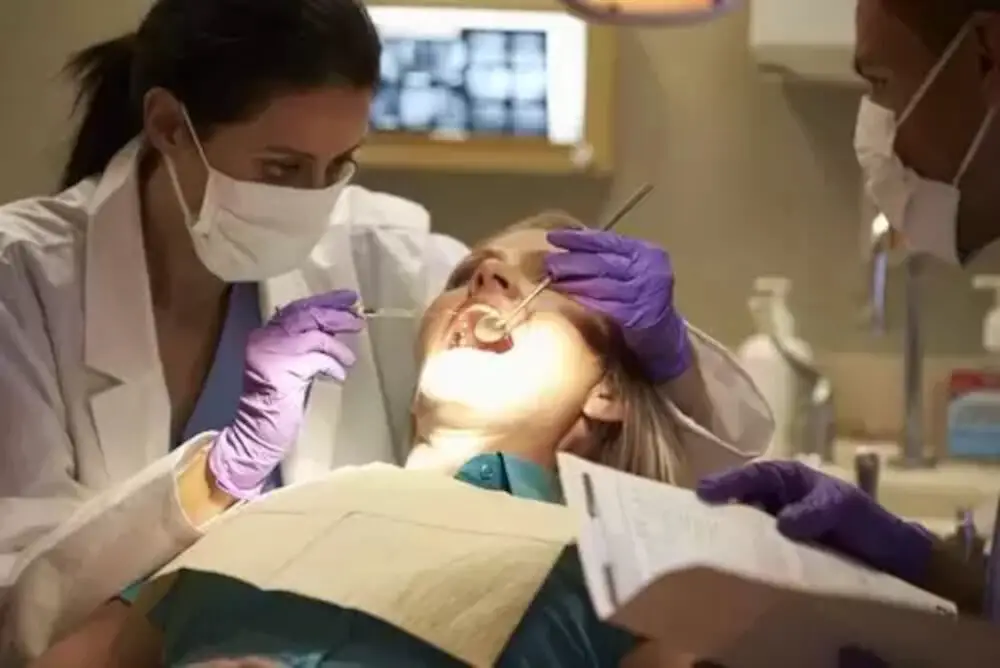
Wisdom teeth removal is a common dental procedure that many people have to undergo. After the surgery, patients are advised to take extra care of their oral health to ensure a smooth and speedy recovery. One of the most common questions asked after wisdom teeth removal is when it is safe to start chewing food again. This is an important concern as improper chewing can cause further damage to the surgical site and prolong the healing process. Chewing after wisdom teeth removal is a delicate matter that requires patience, caution, and proper guidance from your dentist. The recovery process varies from person to person, and factors such as age, health, and the complexity of the surgery can influence the healing time. In general, it takes about one to two weeks for the surgical site to heal, and during this time, patients are advised to stick to a soft food diet to avoid traumatizing the area. However, the question remains, when can you start chewing again? In the following paragraphs, we will explore the factors that determine when it is safe to start chewing after wisdom teeth removal.
Wisdom teeth removal is a common dental procedure that is performed when these third molars do not have enough room to grow in properly or are causing discomfort, pain, or infection. The extraction process involves cutting through the gums and removing the teeth, which can cause swelling, discomfort, and bleeding for several days afterwards. Therefore, it is recommended to follow a soft food diet for a few days after the procedure, avoiding hard, crunchy, and sticky foods that can irritate the extraction site and prolong the healing process. Patients should also drink plenty of fluids, avoid using straws or smoking, and maintain good oral hygiene to prevent infection and promote healing. As the mouth heals, gradually reintroducing solid foods can be done, but always consult with your dentist or oral surgeon for personalized advice and follow-up care.
Following postoperative instructions is crucial to ensure proper healing after wisdom teeth removal surgery. These instructions are provided by your oral surgeon to help you prevent complications and promote a speedy recovery. They may include dietary restrictions, pain management guidelines, oral hygiene instructions, and activity restrictions. Failure to follow these instructions can lead to complications such as bleeding, infection, dry socket, and prolonged recovery time. It is important to understand that every individual’s healing process is unique, and adhering to the postoperative instructions will ensure a successful healing process. Therefore, it is highly recommended to follow the instructions given by your oral surgeon to ensure a smooth and successful recovery after wisdom teeth removal surgery.
The First Few Days After Surgery

The first few days after surgery can be very uncomfortable and painful. It is important to follow all of the post-operative instructions given to you by your dentist or oral surgeon in order to aid in the healing process and reduce the risk of infection. During the first few days, you will be advised to rest and avoid any strenuous activities. You may also be prescribed pain medication to help manage any discomfort you may be feeling. It is important to take this medication as directed and not to exceed the recommended dosage. You should also avoid any alcohol or smoking during this time, as these can slow the healing process and increase the risk of complications. You may experience some swelling and bruising during the first few days, which can be managed with ice packs and gentle massage. You will also need to modify your diet during this time, as you will not be able to chew solid foods. Your dentist or oral surgeon will provide you with a list of foods that are safe to eat, which will likely include soft, cool foods such as yogurt, ice cream, and smoothies. It is important to stay hydrated during this time as well, so be sure to drink plenty of water and other fluids. With proper care and attention, the first few days after surgery can be manageable and will set the stage for a successful recovery.
After wisdom teeth removal, it is highly recommended to avoid solid foods for a certain period of time. This is because the extraction site needs time to heal, and solid foods can potentially damage the blood clot that forms in the socket. The blood clot is crucial in the healing process as it helps to protect the bone and nerves underneath. Additionally, chewing on solid foods can cause discomfort and pain, which can delay the healing process. Therefore, it is essential to stick to a soft food diet, such as soups, smoothies, and mashed vegetables, to ensure a smooth and speedy recovery.
After getting your wisdom teeth removed, it is important to stick to soft foods to avoid disrupting the healing process. While it may seem like your options are limited, there are plenty of alternative soft food options to choose from. Soups, smoothies, and mashed potatoes are all excellent choices that provide the necessary nutrients without requiring extensive chewing. Additionally, foods like scrambled eggs, oatmeal, and yogurt are great sources of protein and can easily be customized with added ingredients like fruit or honey for extra flavor. Just be sure to avoid crunchy or spicy foods, as these can irritate the surgical site and prolong the healing process.
Hydration is incredibly important after wisdom teeth removal. Proper hydration helps to prevent dry sockets, which can occur when the blood clot that forms after the teeth are removed becomes dislodged or dissolves. This can cause intense pain and delay the healing process. Drinking plenty of water also helps to flush out any debris or bacteria that may be present in the mouth, reducing the risk of infection. Additionally, staying hydrated can help to reduce swelling and inflammation, both of which are common after oral surgery. It is recommended to avoid drinking through a straw and carbonated beverages, as these can increase the risk of dry sockets.
When to Gradually Introduce Solid Foods
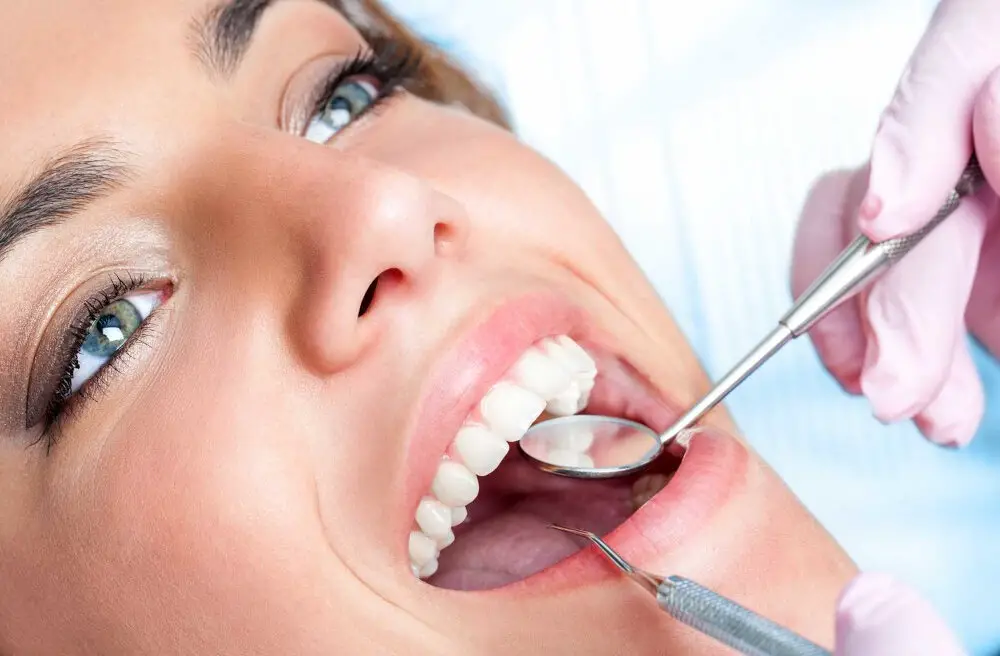
Introducing solid foods to a baby is a significant milestone for both the baby and the parents. It is important to remember that introducing solid foods should be a gradual process and should be done after the baby has reached a certain age. Generally, it is recommended to introduce solid foods to babies between the ages of 4 to 6 months. The baby should be able to sit upright and hold their head steady before introducing solid foods. Additionally, the baby should be showing signs of being interested in solid foods, such as reaching for food or opening their mouth when food is offered. It is crucial to introduce solid foods gradually because the baby’s digestive system is still developing, and sudden changes to their diet can cause digestive issues. Start with single-ingredient purees, such as mashed bananas, sweet potatoes, or applesauce. Introduce a new food every few days and monitor your baby’s reaction. Some babies may have allergies or sensitivity to certain foods, so it is important to introduce new foods slowly and watch for any adverse reactions. Gradually increasing the texture of the food can also help the baby adjust to solid foods. Remember, every baby is different, and there is no set timeline for introducing solid foods. Consult with your pediatrician if you have any concerns or questions about introducing solid foods to your baby.
After wisdom teeth removal, healing progresses in stages. Initially, there may be some bleeding, swelling, and discomfort. This is a natural response to the trauma of the surgery and should subside within a few days. As the body begins to repair the damaged tissues, new blood vessels and cells are formed, and the wound begins to close. It is important to follow proper aftercare instructions, including keeping the area clean, taking any prescribed medications, and avoiding certain foods and activities that could disrupt the healing process. With time, the area will continue to heal and any discomfort should gradually subside. It is important to be patient and allow the body to fully recover before resuming normal activities.
When recovering from wisdom teeth removal surgery, it’s important to follow your dentist’s instructions on when it’s safe to introduce solid foods. Some signs that it may be safe to do so include a decrease in pain and swelling, the ability to open your mouth wider without discomfort, and the absence of bleeding or discharge from the surgical site. Additionally, if you can comfortably chew soft foods like scrambled eggs or mashed potatoes without pain or discomfort, it may be a good indication that your mouth is healing well enough to introduce solid foods. However, it’s always best to consult with your dentist or oral surgeon before making any changes to your post-surgery diet.
Gradually reintroducing solid foods is a crucial part of the postoperative care following wisdom teeth removal. It is essential to begin with soft and easy-to-digest foods such as soups, broths, and yogurt. As the patient begins to feel more comfortable and the swelling starts to decrease, they can start introducing semi-solid foods like mashed potatoes and scrambled eggs. It is important to avoid hard, crunchy, or chewy foods until the healing process is complete, which usually takes around two weeks. Patients should also take small bites and chew their food slowly to avoid irritating the surgical site. Gradually reintroducing solid foods can help ensure a smooth recovery process and minimize discomfort.
Foods to Avoid During Recovery
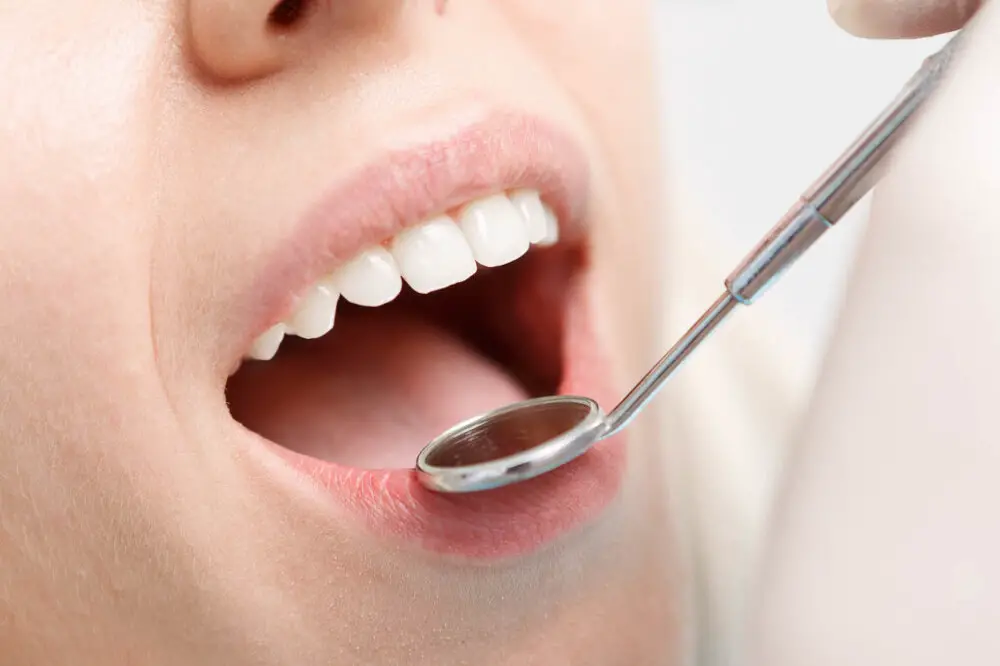
After undergoing wisdom teeth removal surgery, it is crucial to pay close attention to the foods you eat during your recovery period. Certain foods can aggravate the surgical site and delay the healing process, causing pain and discomfort. Foods that are sticky or hard to chew should be avoided as they can easily get stuck in the surgical site, leading to infection, inflammation, and bleeding. Some of the foods that should be avoided during the recovery period include hard candy, nuts, popcorn, chips, and crunchy vegetables such as carrots and celery. In addition, it is also important to avoid foods that are spicy, acidic, or too hot as they can irritate and inflame the surgical site, causing pain and discomfort. Spicy foods such as hot sauce, chili, and salsa can cause a burning sensation in the mouth, while acidic foods such as tomatoes, citrus fruits, and vinegar can cause irritation and inflammation. Hot foods such as soups and tea should also be avoided as they can increase blood flow to the surgical site, leading to bleeding and swelling. Instead, opt for soft foods that are easy to chew and swallow, such as mashed potatoes, scrambled eggs, yogurt, and smoothies.
After wisdom teeth removal, it is important to avoid certain foods to promote healing and prevent complications. Hard, crunchy, or sticky foods can dislodge blood clots, irritate the surgical site, and delay the healing process. Examples include nuts, chips, popcorn, candy, and chewing gum. Spicy, acidic, or hot foods can also cause discomfort, inflammation, or infection, and should be avoided for a few days after surgery. Instead, patients should opt for soft, cool, and nutritious foods, such as soups, smoothies, yogurt, mashed potatoes, and steamed vegetables. These foods can provide the necessary nutrients, hydration, and comfort during the healing process.
After having wisdom teeth removed, it is essential to follow a strict diet plan to ensure a smooth recovery and prevent any complications. You should avoid hard, crunchy, and chewy foods that can irritate the surgical site and cause bleeding. Foods like nuts, popcorn, chips, and tough meats should be avoided. Additionally, spicy or acidic foods like hot sauce or citrus fruits can cause discomfort and delay healing. It is also recommended to avoid alcohol and smoking during the recovery period as they can slow down the healing process and increase the risk of infection. Instead, a soft diet consisting of soups, smoothies, mashed potatoes, and scrambled eggs can provide essential nutrients to aid in the recovery process.
Modifying favorite recipes to make them safe for recovery after wisdom teeth removal is crucial to ensure a speedy and comfortable recovery. One of the most important tips is to make sure the food is soft and easy to chew. This can be achieved by cooking vegetables until they are very tender, using a blender or food processor to puree soups or stews, and choosing soft proteins like fish or tofu. It is also important to avoid spicy or acidic foods, as they can irritate the sensitive area around the extraction site. Finally, try to incorporate foods that are high in nutrients like protein, vitamins, and minerals to aid in the healing process. By following these tips, you can still enjoy your favorite meals while promoting a healthy recovery after wisdom teeth removal.
Other Considerations for Chewing After Wisdom Teeth Removal
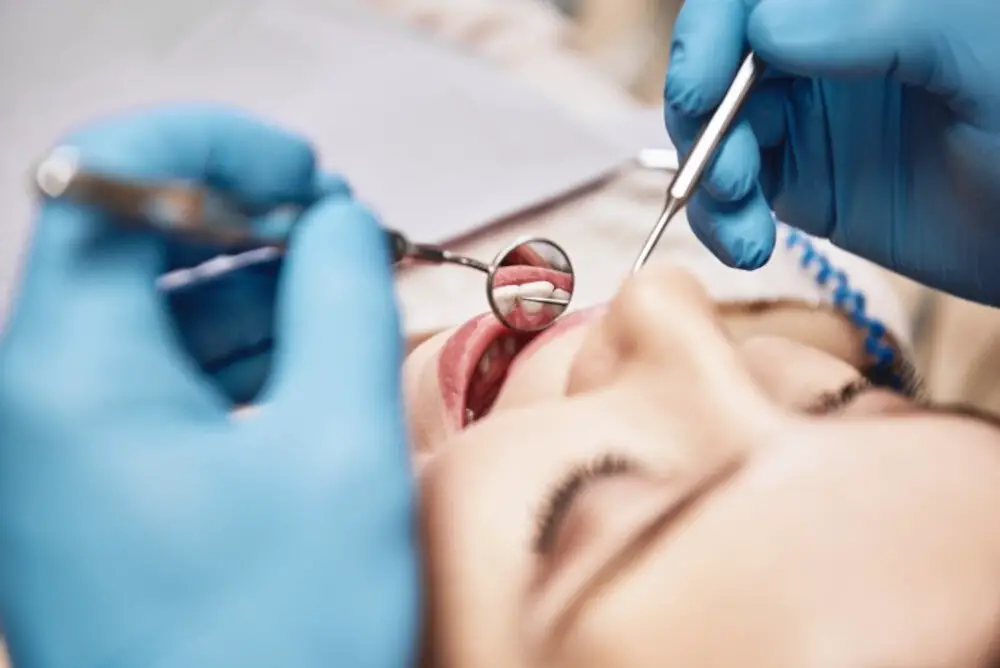
After wisdom teeth removal, there are a few other considerations to keep in mind when it comes to chewing. One of the most important factors is the type of food you consume. Soft, non-acidic foods are recommended during the first few days after surgery to avoid irritating the extraction site. Some good options include soups, smoothies, scrambled eggs, mashed potatoes, and yogurt. It’s also important to avoid foods that are hard, crunchy, or sticky, as they can dislodge blood clots and delay the healing process. This includes things like popcorn, nuts, chips, and gum. As you start to feel better, you can gradually add more solid foods back into your diet, but be sure to listen to your body and avoid anything that causes pain or discomfort. Another consideration is your chewing habits. When you do start to chew again, try to avoid using the extraction site as much as possible. Instead, chew on the opposite side of your mouth or use your front teeth. This can help prevent irritation and allow the extraction site to heal more quickly. It’s also important to take your time when chewing and avoid rushing through meals. Eating slowly and chewing thoroughly can help prevent discomfort and ensure that your food is properly digested. Overall, by being mindful of the type of food you eat and your chewing habits, you can promote faster healing and reduce the risk of complications after wisdom teeth removal.
After wisdom teeth removal, chewing can still be uncomfortable due to several reasons. Firstly, the extraction site is still healing, and the surrounding tissue is still sensitive. Chewing can cause pressure and irritation on the area, leading to pain and discomfort. Secondly, the jaw may still be numb from the anesthesia, making it difficult to chew and control the movement of food in the mouth. Additionally, the act of chewing requires the use of the jaw muscles, which may also be sore and tender after the procedure. Therefore, it is essential to follow the dentist’s instructions on when it is safe to resume regular food intake and avoid hard, crunchy, and sticky foods that can further aggravate the area.
After wisdom teeth removal, chewing can be quite uncomfortable due to the sensitivity of the affected area around the jaw. However, there are some tips that can help minimize the discomfort and make chewing more bearable. Firstly, it is recommended to consume soft and easy-to-chew foods such as mashed potatoes, soup, and smoothies. Secondly, avoid crunchy, spicy, and acidic foods that may irritate the wound. Thirdly, chewing on the opposite side of the mouth will alleviate pressure on the affected area. Lastly, taking painkillers as prescribed by the dentist can help reduce any pain or discomfort while chewing. By following these tips, patients can recover faster and return to their normal eating habits in no time.
Following postoperative instructions is crucial for a successful recovery after any surgery, including wisdom teeth removal. These instructions are specifically designed to help patients manage pain, reduce the risk of infection and promote healing. Failure to follow these instructions can lead to complications such as dry socket, prolonged discomfort, swelling, and bleeding. Patients are advised to rest, avoid smoking, alcohol, and hard foods, and practice good oral hygiene. It is essential to follow these instructions as they are given by a dental professional who has your best interest in mind. Adherence to these guidelines can ensure a quicker recovery and prevent any further complications after the surgery.
In summary, after wisdom teeth removal, it is crucial to allow time for proper healing before resuming normal activities such as chewing. The first 24-48 hours require rest and a soft-food diet to prevent further bleeding and damage to the surgical site. Following this initial period, gentle chewing may be introduced with caution and gradually increased as tolerated. It is advised to avoid hard, crunchy, or sticky foods for at least a week to reduce the risk of complications such as dry socket. Additionally, good oral hygiene and following post-operative instructions from the oral surgeon are crucial for a successful recovery.
After undergoing a wisdom teeth extraction, it is crucial to prioritize recovery by following postoperative instructions and being patient with the healing process. While it may be tempting to rush back into your normal routine, doing so can result in complications or prolong the healing timeline. By taking the time to rest and allow your body to heal properly, you can ensure a smooth recovery and reduce the risk of infection or other complications. It’s important to follow your dentist’s instructions regarding diet, medication, and oral hygiene practices to ensure the best possible outcome. Remember, patience is key when it comes to recovery, and taking the time to care for yourself will ultimately result in a faster and more complete healing process.
Conclusion

In conclusion, the decision to start chewing after wisdom teeth removal should be taken with utmost care and attention. It is crucial to follow the aftercare instructions provided by the dentist or oral surgeon to avoid any complications or setbacks in the healing process. While it may be tempting to resume eating solid foods or chewing gum, patients must exercise patience and restraint until they have fully recovered. It is also important to note that the recovery period varies from person to person, and some may take longer than others to heal. Ultimately, the best way to ensure a safe and speedy recovery is to listen to your body and seek medical attention if you experience any unusual pain or discomfort.
